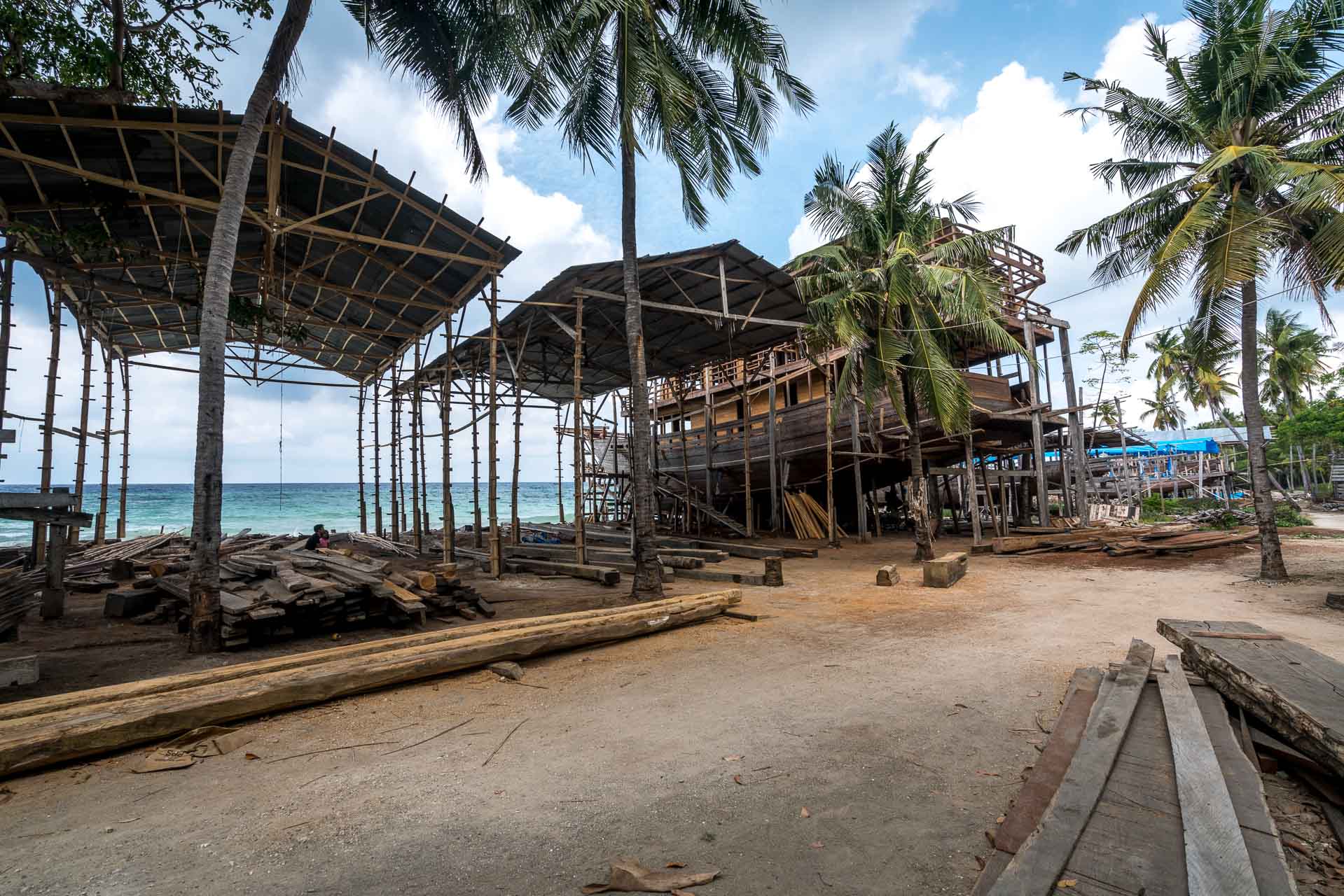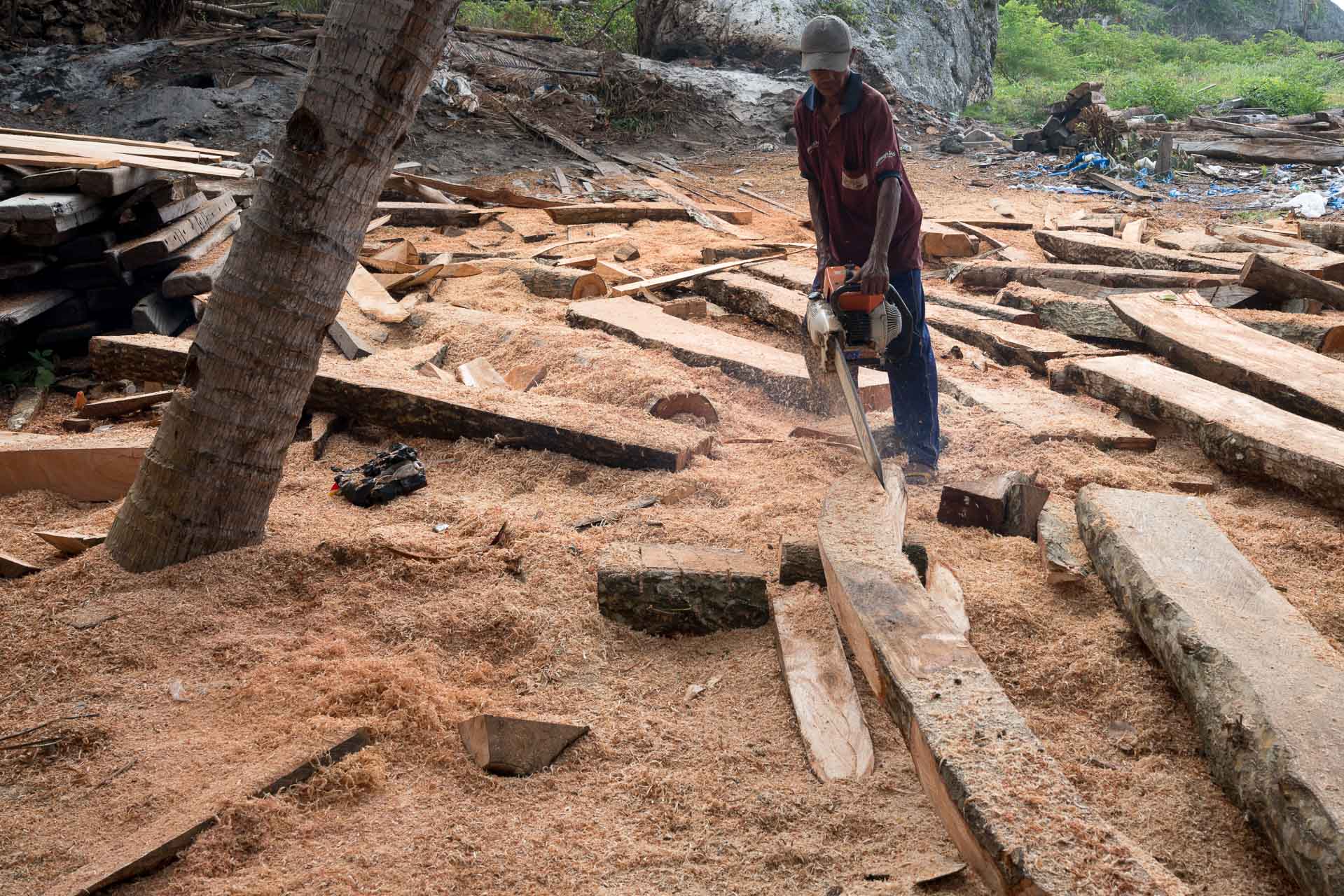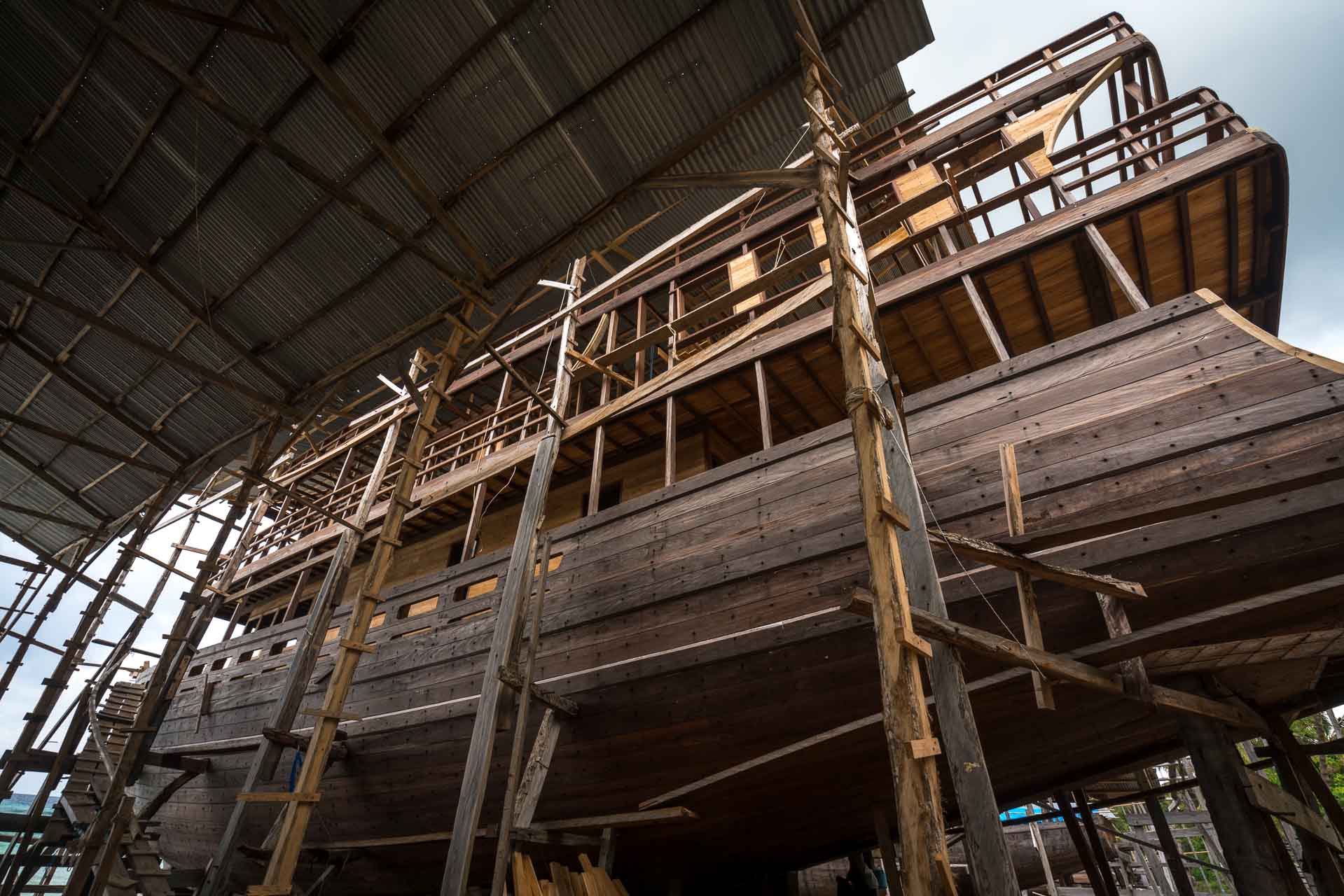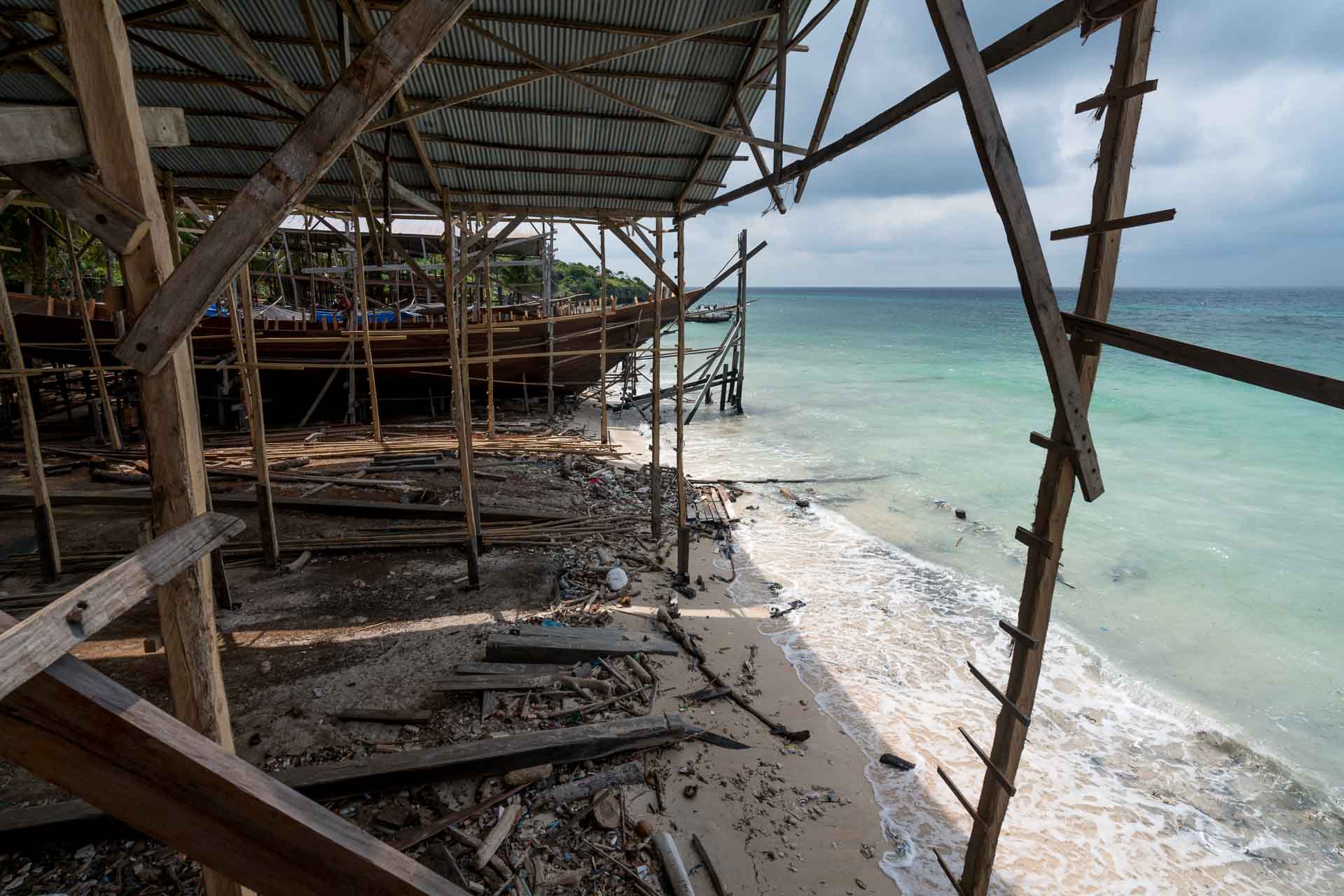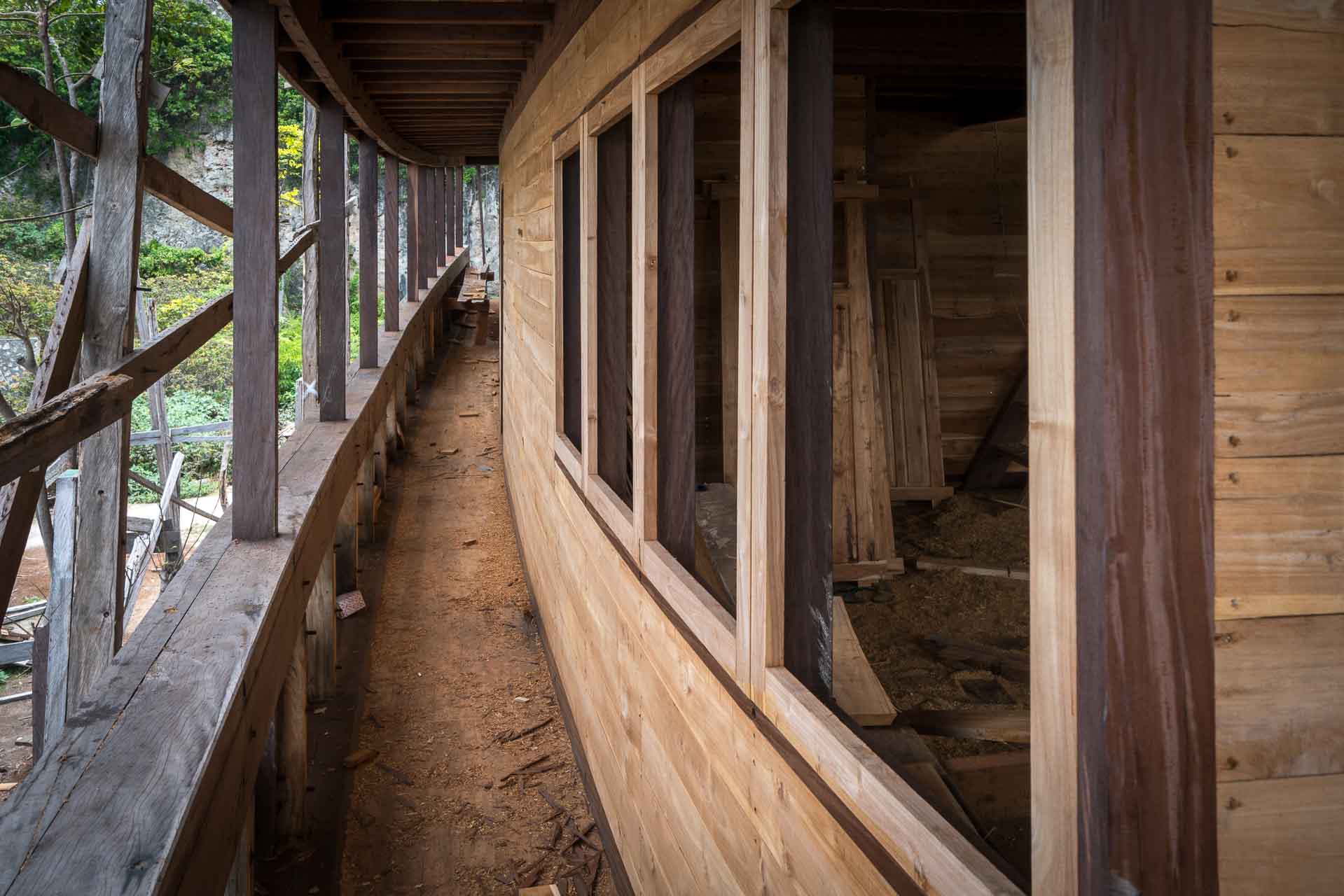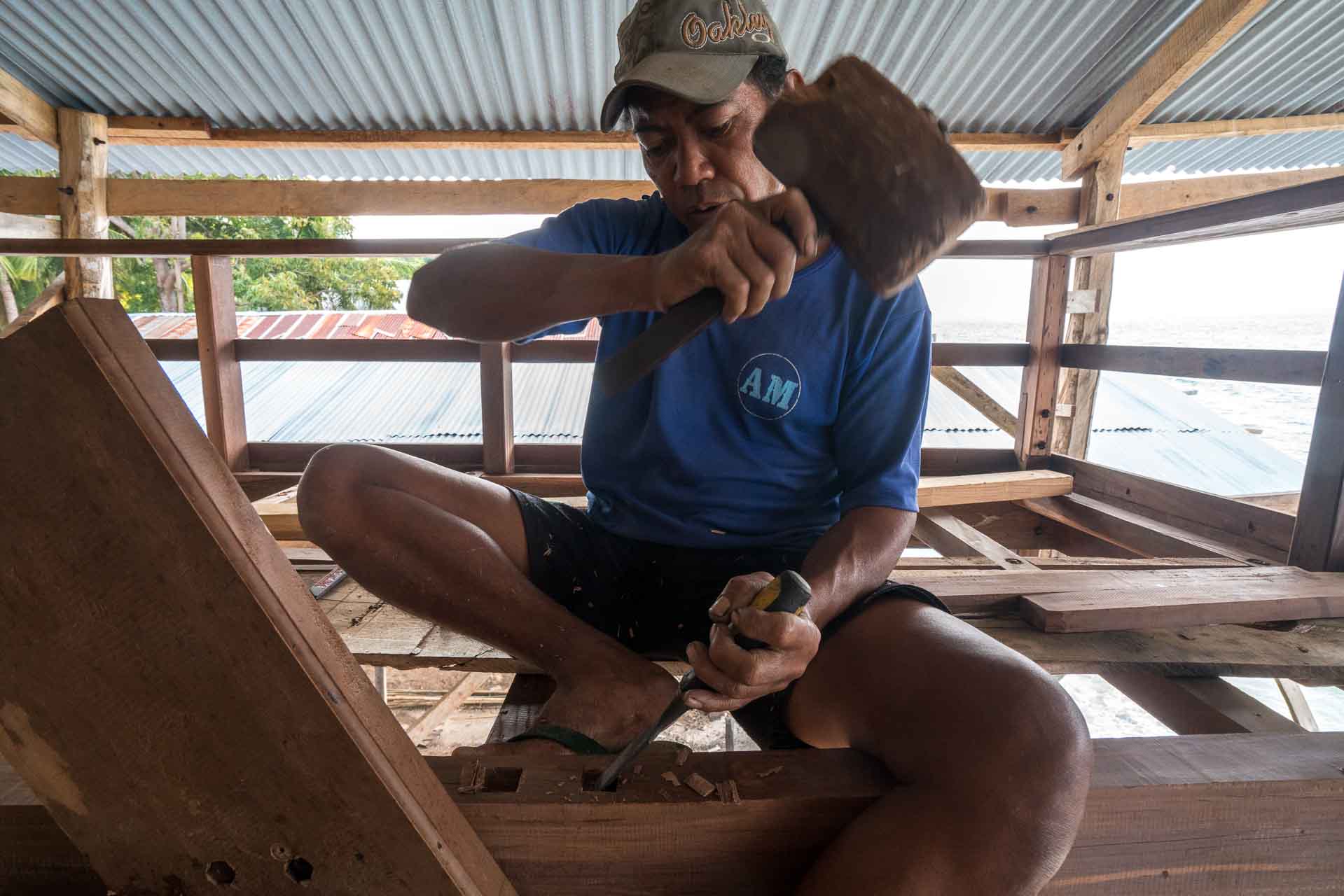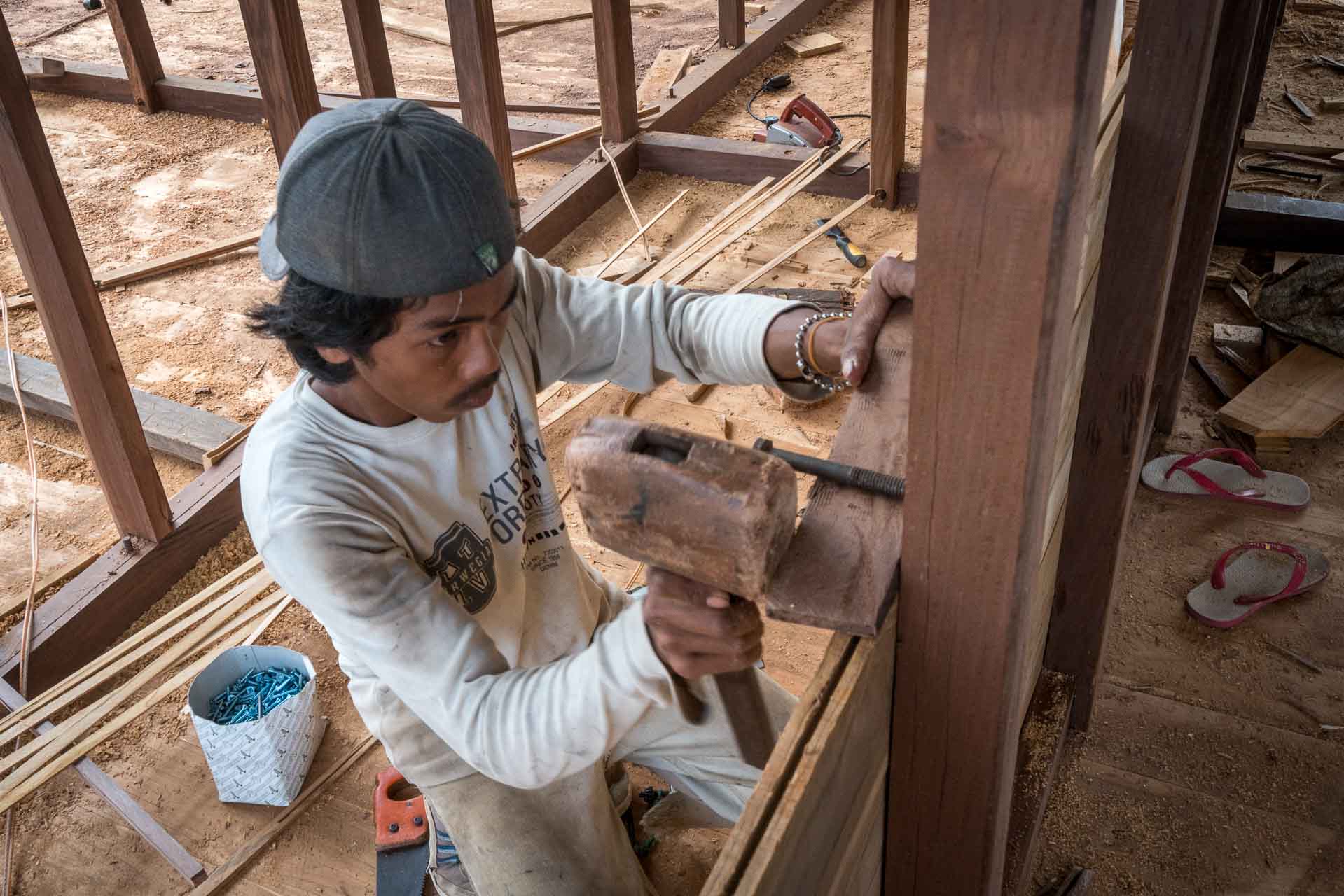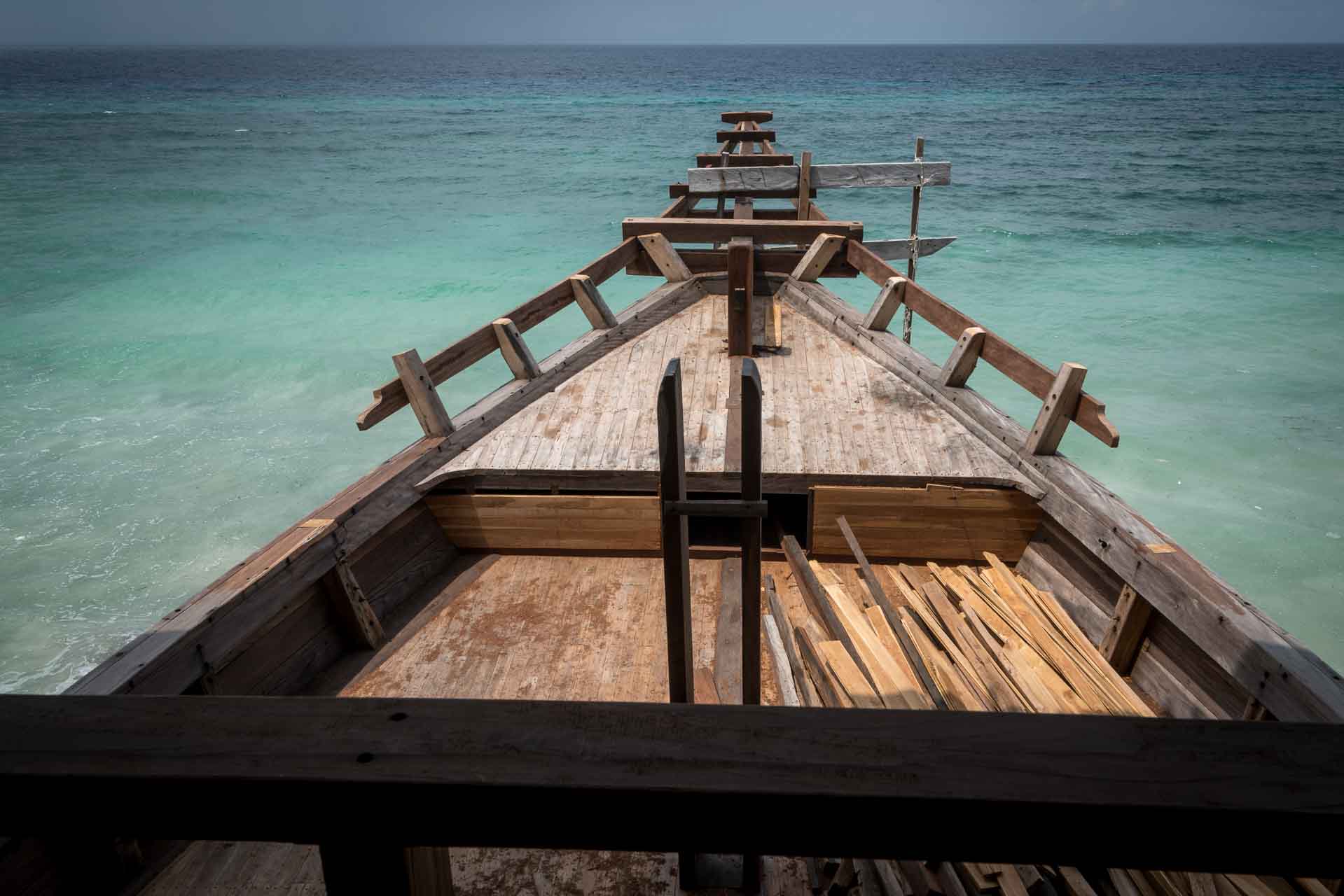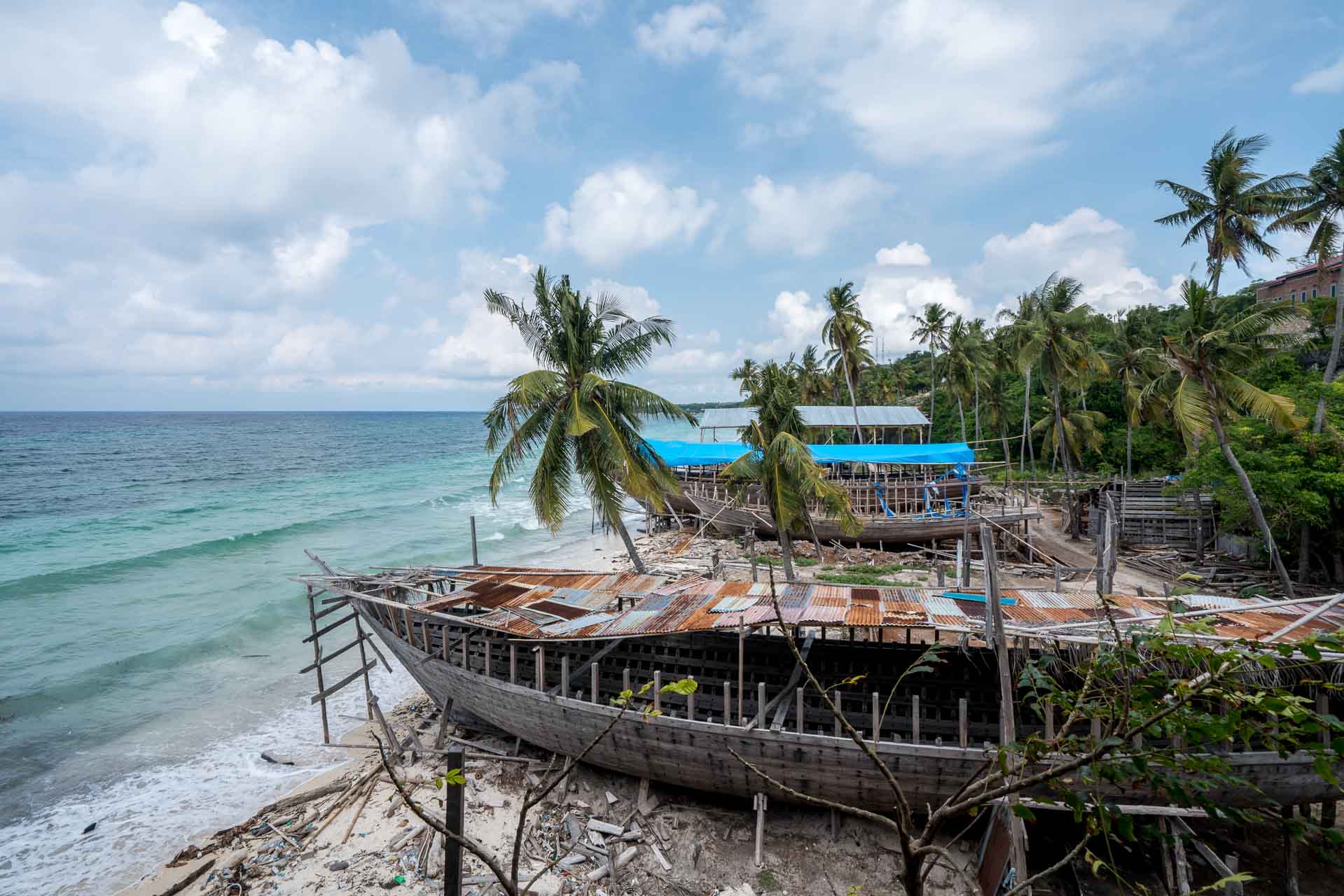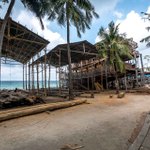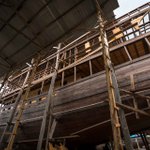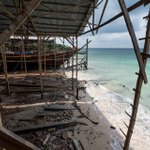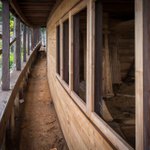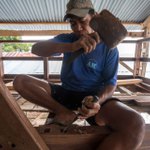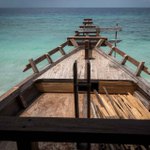Shipyard
Near Bira, in Bulukumba district on the island of Sulawesi (Indonesia), there are a few shipyards right along the beach. With the simplest of tools – chain saws, hammers, drills and planes – a dozen men craft large wooden vessels from the finest ironwood. The sand is covered with wood chips and sawdust. Children are playing between the unfinished hulls.
These ships are called phinisi and they are made by Bugis shipbuilders. Bugis seafarers have used them for centuries on their trading ventures in the region. Navigating not only the seas between China, Singapore and northern Australia but also between colonial powers, the vagaries of trading privileges and restrictions, as well as shifting market demand for anything between sea cucumbers and opium, Bugis traders have made a name for themselves.
Originally built as schooners, most phinisi are motorized today. The large one in the images – about 30 metres long and three storeys high – is allegedly an order from Germany and will be sold for a mere 300,000 Euros. It will serve as a luxurious liveaboard for scuba diving trips around Sulawesi.
The more I see and read, the more questions I have. I'd love to know about the woods used and their sources, the process of construction and the rituals in which it is embedded, the lives of the families here, the contacts to German dive shops and the continuing links to China with its demand for sea cucumbers.
Another PhD in another life, perhaps.
Privacy Policy
Plain and simple: I take the principle of minimal data collection serious and try hard not to collect or process any personal data beyond the basics required to serve and maintain the website.
Specifically,
- We do not use cookies.
- We do not use third party analytics.
- There is no contact form that would allow you to enter personal data.
- We do not use advertising to run this website.
In order to serve this website, your IP address and information about your browser, operating system and screen resolution need to be collected and processed. theotherimage.com is a simple, handcrafted, static website hosted by Netlify. It uses fonts by Adobe Fonts (formerly Typekit). Both Netlify and Adobe automatically collect usage data, either generated by the use of this website or from the service infrastructure itself. This data is used for accounting and analytic purposes as well as for technical maintenance by these two companies. Neither Netlify nor Adobe use cookies to track you. Specifics can be found in their respective privacy policies.
The videos on this website are hosted by Vimeo. Depending on your browser configuration, Vimeo may use cookies and other tracking technologies as stated in their respective privacy policies.
If you have any questions about this privacy policy, please write to: Martin Saxer, LMU Munich, Department of Social and Cultural Anthropology, Oettingenstr. 67, 80538 Munich, Germany.
This privacy policy has been updated on 30 December 2018.
![[ the other image ]](/images/logo/toi-logo_2x.png)
